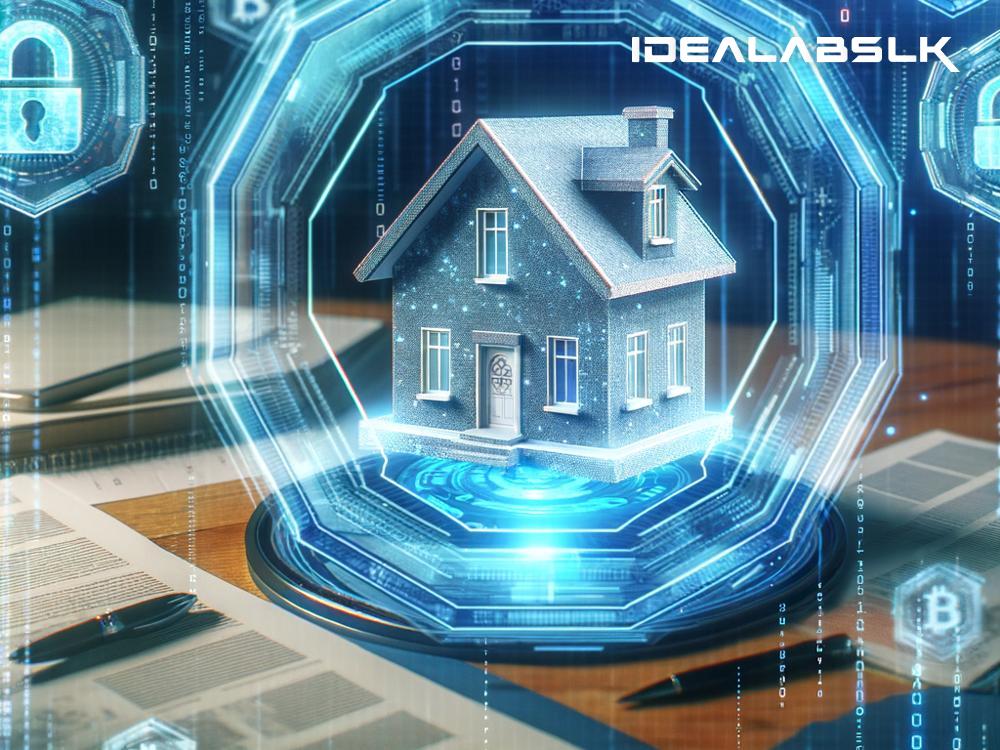Unlocking the Future: Blockchain for Real Estate Digital Mortgages
In the digital age, the way we buy homes is transforming. Gone are the days when the process was bogged down with endless paperwork, long waiting times, and inefficiencies. The real estate industry is on the brink of a revolution, thanks to blockchain technology. Specifically, digital mortgages through blockchain are set to change the game for homebuyers and sellers, simplifying processes, enhancing security, and making transparency the norm. But what does this really mean for the average person looking to buy a home?
Understanding the Basics
Before diving into the specifics of digital mortgages, it's crucial to grasp what blockchain is. Imagine it as a digital ledger or record book that is accessible by multiple parties but is extremely secure and nearly impossible to tamper with. Each transaction on this ledger is verified by a network of computers and then added as a new "block" to a chain of previous transactions. Hence the name, blockchain.
This technology underpins cryptocurrencies like Bitcoin, but its potential extends far beyond the realm of digital money. One of the most promising areas for blockchain is the real estate sector, particularly in streamlining and securing the mortgage process.
The Current Mortgage Landscape
Currently, obtaining a mortgage is often a cumbersome and opaque process. It involves a lot of paperwork, from credit history checks and financial assessments to property appraisals and legal documentation. This process can be time-consuming and stressful, with plenty of room for errors and fraud.
Enter blockchain. By bringing the mortgage process onto a blockchain platform, many of these issues can be addressed head-on.
The Benefits of Blockchain for Digital Mortgages
Speed and Efficiency
Blockchain can dramatically speed up the mortgage process by enabling all parties involved to access the necessary information in real-time. Since the data on a blockchain is always up-to-date and verified, it reduces the need for repetitive document submissions and checks. This means faster transaction times, from application to closing.
Security and Trust
One of the biggest advantages of blockchain is its security. Tampering with data on a blockchain is exceedingly difficult, making fraud much less of a concern. Additionally, blockchain can provide a transparent track record of a property’s history, including previous sales, prices, and any disputes or issues. This transparency boosts trust among all parties in the mortgage process.
Cost Reduction
Blockchain can cut out many of the middlemen traditionally involved in the mortgage process, such as brokers and some types of legal verifiers. By streamlining these processes, it can lower the overall cost of obtaining a mortgage, making home buying more accessible.
Real-World Applications
Though blockchain-powered digital mortgages are still in their infancy, several initiatives across the globe are testing the waters. For instance, some companies are experimenting with digital tokens representing property ownership, which can be bought and sold easily on blockchain platforms. Others are developing entire blockchain ecosystems for all aspects of the real estate transaction process, from mortgages to property listing services.
Challenges and Limitations
Despite its potential, the integration of blockchain into the real estate sector is not without challenges. Regulatory hurdles, the digital divide, and the need for a shift in industry mindset are significant barriers. Moreover, the technology itself is still evolving, and there are concerns about scalability, interoperability with existing systems, and user privacy.
Looking Ahead
The journey of integrating blockchain into real estate and mortgages is still at the beginning. Yet, the potential benefits are too compelling to ignore. For the average homebuyer, blockchain could mean a faster, cheaper, and more secure path to homeownership. For the industry, it could mean unprecedented levels of efficiency and transparency.
As digital technologies continue to evolve, the dream of a streamlined, blockchain-powered mortgage process is slowly becoming a reality. It may not happen overnight, but the wheels are in motion. The future of home buying and selling is digital, and it's clear that blockchain will play a crucial role in shaping this future.
In conclusion, blockchain technology offers a promising solution to many of the inefficiencies and security challenges of traditional mortgage processes. By providing a secure, transparent, and efficient platform, blockchain has the potential to transform the real estate industry, making the dream of homeownership a smoother reality for millions around the world.

